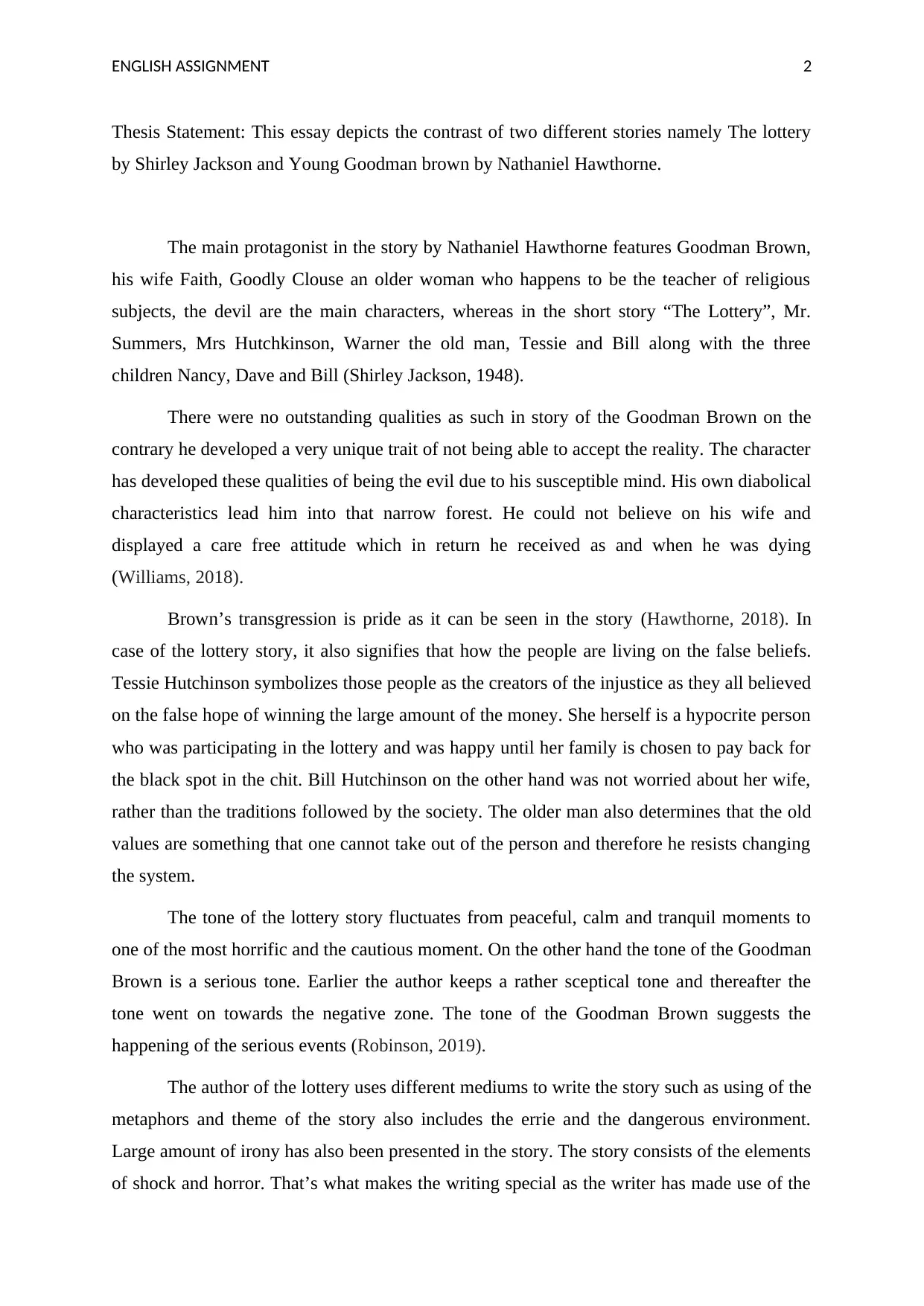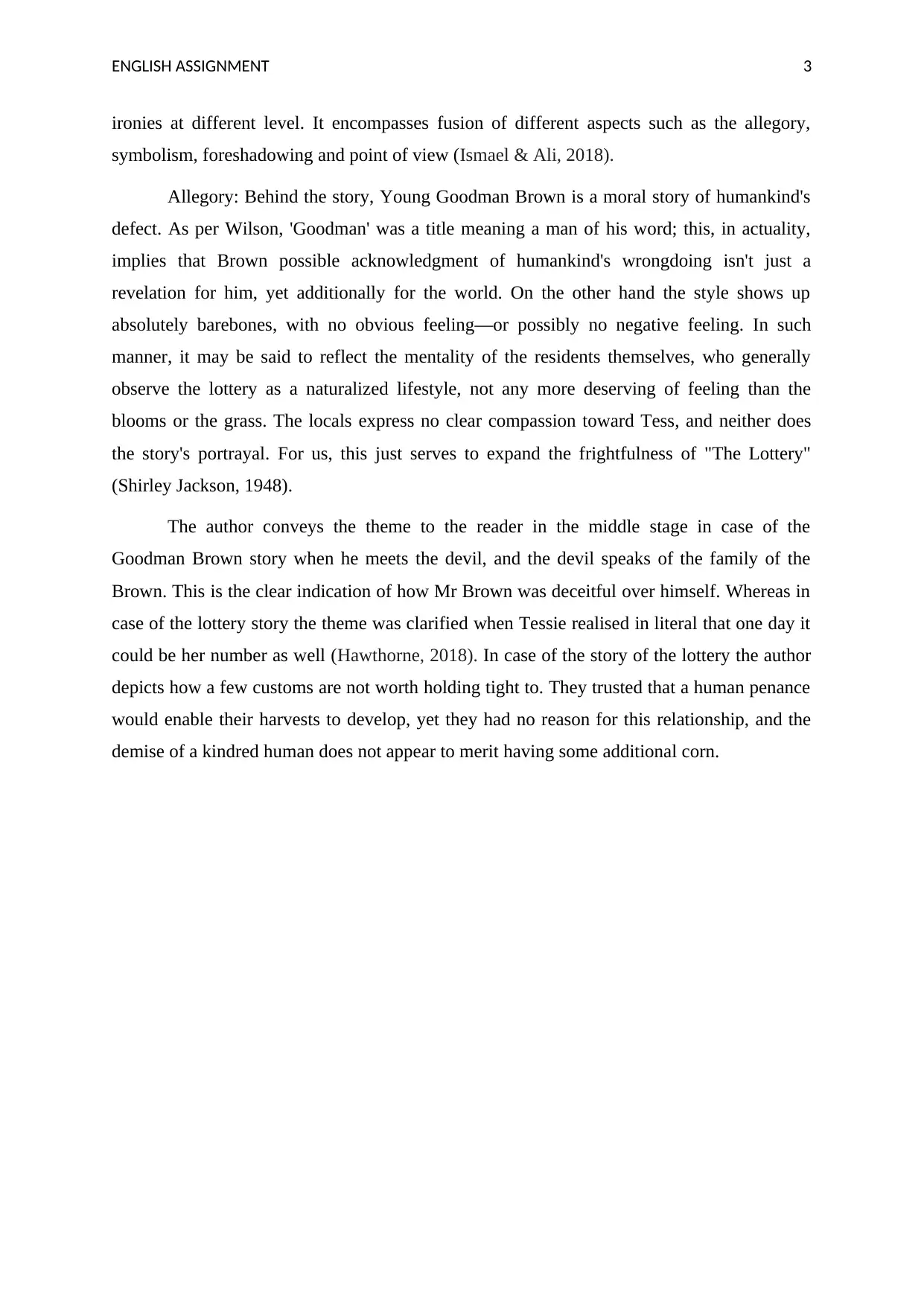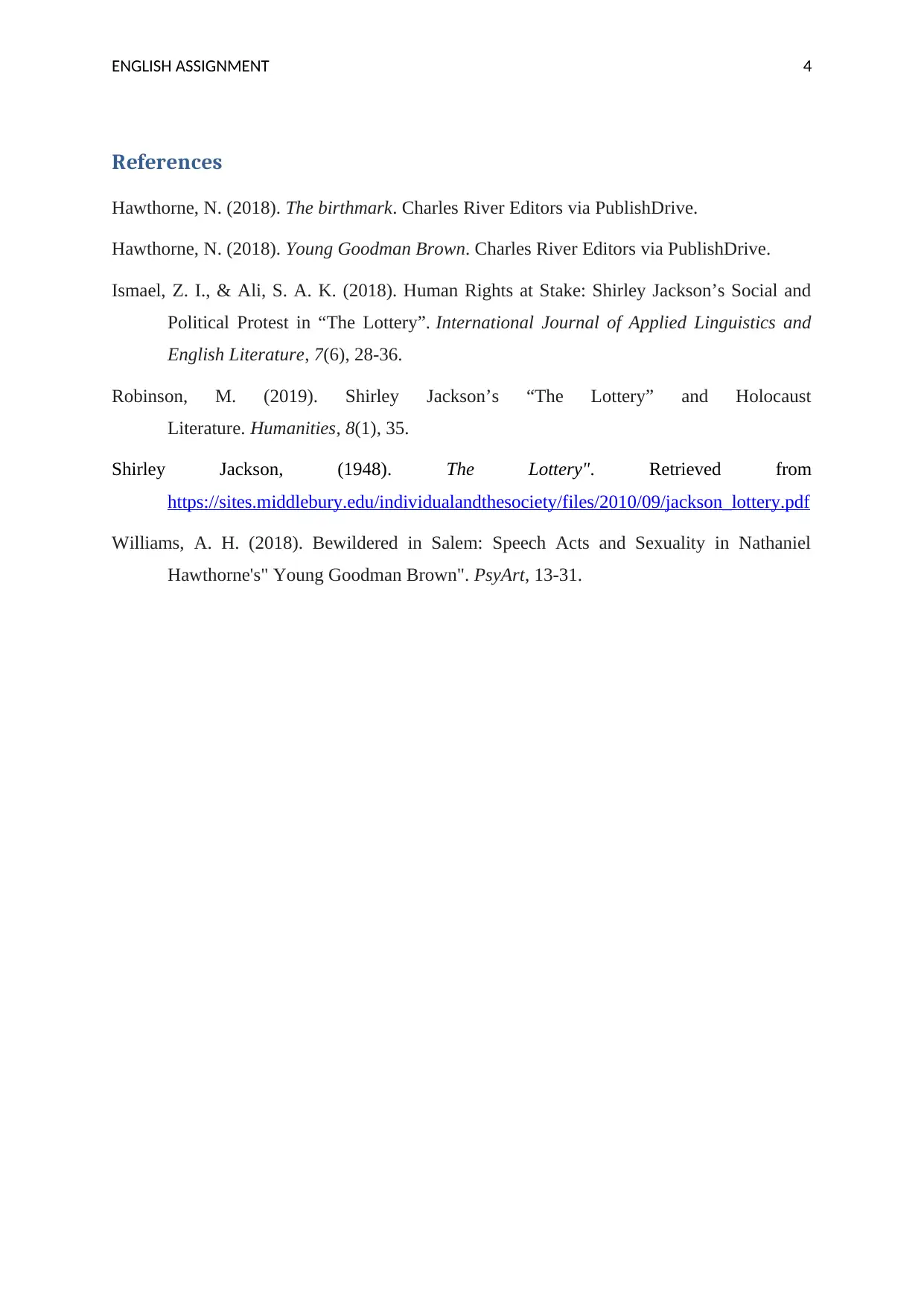ENGL 102 Fiction Essay: Comparing and Contrasting Two Short Stories
VerifiedAdded on 2023/01/18
|4
|1002
|60
Essay
AI Summary
This essay provides a comparative analysis of Shirley Jackson's 'The Lottery' and Nathaniel Hawthorne's 'Young Goodman Brown'. The essay begins with a thesis statement, which highlights the contrasting elements of the two stories including the main characters and their unique traits. It then delves into the themes, tones, and literary techniques employed by each author, such as the use of allegory, symbolism, and irony. The essay contrasts the characters' motivations and the societal contexts presented in each story, emphasizing the different moral lessons conveyed to the reader. The essay also explores the authors' writing styles, including their use of metaphors and the creation of atmosphere. The essay concludes by referencing the sources used. The essay fulfills the requirements of an ENGL 102 fiction essay assignment, as it compares and contrasts two stories from the fiction unit.
1 out of 4






![[object Object]](/_next/static/media/star-bottom.7253800d.svg)